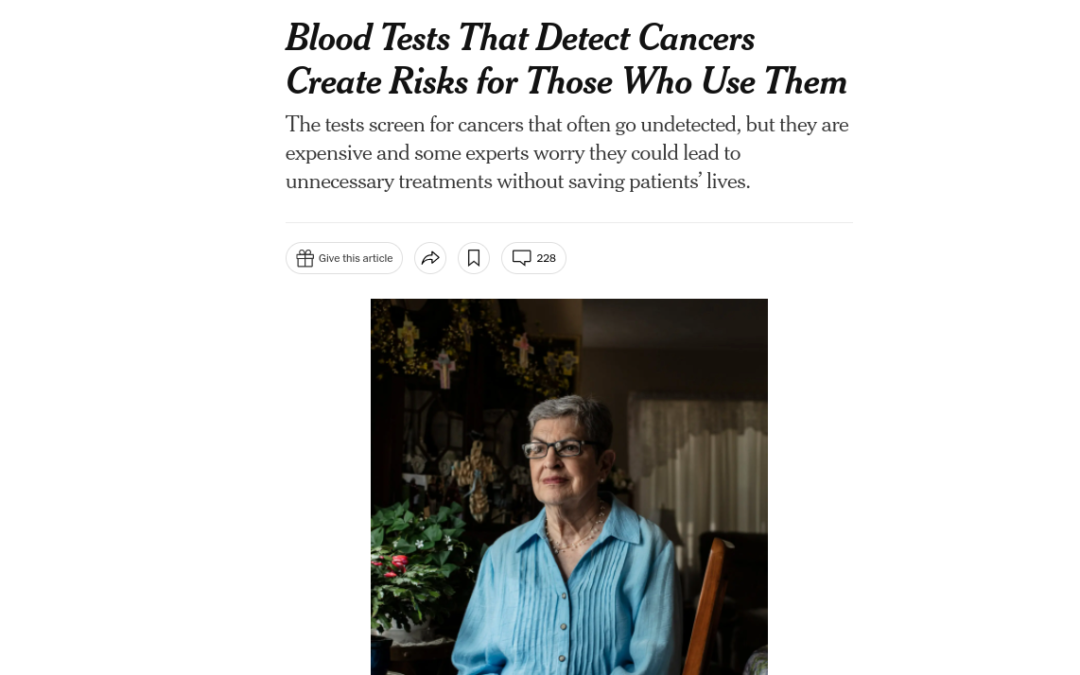The New York Times just released an article on one of the new blood screening tests for healthy individuals to detect cancer early – GRAIL Galleri. ExactSciences is following Grail’s lead with a similar Laboratory Developed Test (LTD) offering. Minuscule shards of DNA or proteins are sought out in a patients’ blood sample that could potentially signal cancer that might not have been found by standardized testing. As a reminder, LDTs are not regulated based on the accuracy of the actual results or the validity of the clinical claims.
Patients receiving #Grail testing will pay $949 out of pocket, as it is not currently covered by insurance. When discussing cost, the following quote was in the NY Times article:
“GRAIL proposes to test every Medicare beneficiary every year, making it the screening test that could bankrupt Medicare,” said Dr. H. Gilbert Welch, a senior investigator in the Center for Surgery and Public Health at Brigham and Women’s Hospital.
With 44 million Medicare beneficiaries and an annual test costing about $1,000 a year plus expensive scans and biopsies for those whose tests are positive, the price tag could be substantial.
Paradoxical as it may sound, finding cancers earlier could mean just as many deaths, with the same timing as without early diagnosis. That is because — at least with current treatments — cancers destined to kill are not necessarily cured if found early.
What if a patient has a positive test, but doctors are unable to locate the cancer. Others will be treated aggressively with surgery or chemotherapy for cancers that, if left alone, would not have grown and spread and may even have gone away.
Dr. Susan Domchek, a breast cancer researcher at the University of Pennsylvania, warned that when large numbers of people get tested, false positives become “a real problem,” adding, “we need to know what to do with those results and what they mean.” #Falsepositive test results happen significantly more when the healthy, general population is tested.
Does the test work?
As of now, only one published study is available asking whether the blood tests find early, undetected cancers. The study involved 10,000 women aged 65 to 75 who had the blood test and were encouraged to also have routine cancer screening.
The blood test found 26 patients who had cancers: two lymphomas, one thyroid cancer, one breast cancer, nine lung cancers, one kidney cancer, two colorectal cancers, one cancer of the appendix, two cancers of the uterus, six ovarian cancers and one unknown case in which there were cancer cells in the woman’s body but it was not clear where the cancer started.
Seventeen of these women, or 65 percent, had early stage disease.
Conventional screening found an additional 24 cancers that the blood tests missed.
“There is a real cost to adopting things before we know if they work,” said Dr. David Ransohoff, a cancer researcher at the University of North Carolina.
What are your thoughts? Should these blood tests be available to the general population before they have been fully demonstrated to work? Contact us today to share your thoughts or learn how CGI can help!

Recent Comments